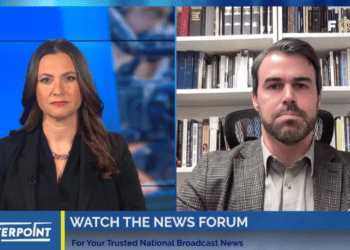Beijing’s forceful methods of dealing with Taiwan and Hong Kong are detrimental to all parties, writes Steve Tsang.
By Steve Tsang, Jan. 16, 201 8
8
With his country’s power and influence reaching new heights globally, President Xi Jinping has made it clear that both Hong Kong and Taiwan need to embrace “mother China.” Yet taking an assertive approach is counter-productive.
Beijing is worried about Hong Kong because of the appearance of a demand among its young people for self-determination, which is regarded as a nascent independence movement. Any such movement is deemed an assault on the “core national interest.”
China’s objective is to nip this in the bud. Top leaders therefore openly warn the young people of Hong Kong against using the Chinese promise of a “high degree of autonomy” as a basis for confrontation.
Beijing works on the assumption that the young activists can be intimidated or their parents frightened. This is meant to be supplemented by “patriotic education” or brainwashing.
The Chinese government can’t be more wrong. This failure reflects in part a tightening of control under Xi Jinping. While a local sense of identity has long been in the making in Hong Kong, the advent of a clarion call for self-determination is a new development. It didn’t exist five years ago.
In an important sense the young people’s call for self-determination is an unintended consequence of an earlier Chinese policy to tighten control over Hong Kong.
Unlike their parents’ generation who witnessed the 1989 Tiananmen massacre, young people of Hong Kong don’t really understand what the Chinese government would do to stay in power.
The increasingly forceful Chinese policy will only put Hong Kong-Mainland relations in a vicious circle. Chinese intimidation breeds resistance in Hong Kong, which causes heightened concern in Beijing.
The best way to deal with Hong Kong’s nascent movement for self-determination is to make it unnecessary. Proscribing it will not make it disappear.
Chinese leaders can break this vicious circle by working with Hong Kong to reinstate a mutually tolerable framework, under the original conception of “one country, two systems.” Hong Kong citizens understand that Hong Kong’s survival as a Special Administrative Region will be put at risk should it elect a chief executive unacceptable to Beijing.
The best way to deal with Hong Kong’s nascent movement for self-determination is to make it unnecessary. Proscribing it will not make it disappear.
What underpins China’s approach toward Hong Kong is also driving its policy toward Taiwan. The Chinese government chooses to see the Democratic Progressive Party (DPP) administration of Tsai Ing-wen in Taipei as inherently unfriendly and untrustworthy.
Yet, at her inauguration as president a year ago, Tsai went out of her way to acknowledge the historical events of 1992 that provided a basis for the two sides of the Taiwan Strait to fudge their differences and avoid confrontation. This is what former Taiwan official Su Chi called “the 1992 consensus.”
However, the Chinese leadership soon required Tsai to accept publicly China’s definition of “the 1992 consensus.” Beijing then punished Taiwan for electing Tsai, by dramatically reducing the number of Chinese tourists to Taiwan and by mounting pressure on third states to humiliate Taiwan internationally.
In so doing the Chinese have ignored the reality on the ground. To begin with, Tsai hasn’t actually departed in a significant way from her Kuomintang predecessor’s Mainland policy. “The 1992 consensus,” which President Ma Ying-jeou embraced, was an agreement to disagree. The “one-China principle” he supported was the Kuomintang version, which doesn’t include accepting PRC jurisdiction over Taiwan.
In democratic Taiwan any leader who openly accepts the PRC’s definition of “the 1992 consensus” and “one-China principle” commits electoral suicide. Tsai can’t do so. By making an impossible demand, the Chinese government only pushes Tsai farther away.
While Tsai will continue to respond in a restrained way to limit damage on Taiwanese interests, the young people of Hong Kong are likely to push back. Beijing holds the initiative in both cases. It has the scope to ease pressure on Hong Kong and thus avoid a slow-motion train wreck, and ease pressure on Tsai and avoid a cross-strait confrontation.
It’s indeed in the interest of China, Hong Kong, Taiwan and the rest of the world that it would do so. But there is no sign Xi Jinping will act accordingly.
Steve Tsang is director of the China Institute, SOAS University of London, U.K. This article is part of the Macdonald-Laurier Institute’s Dragon at the Door series.




